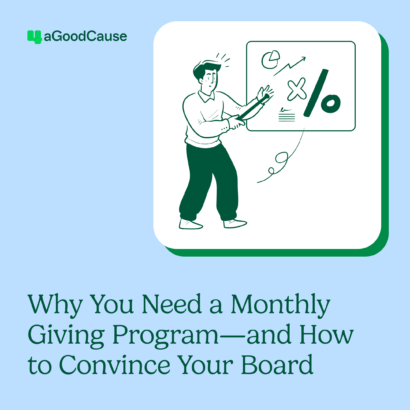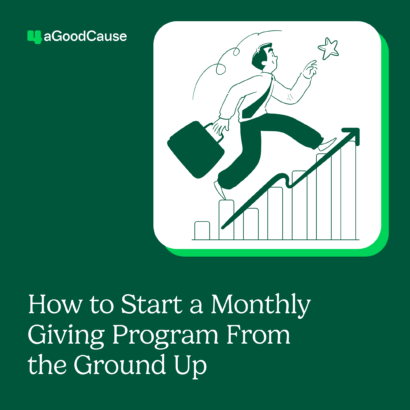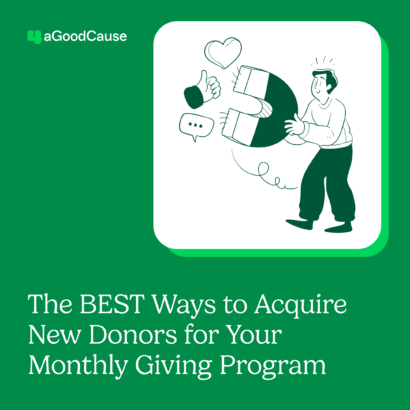Not too long ago, event planners would advertise upcoming events by posting a few flyers, mailing postcards and maybe running an ad in a few newspapers, with hopes that word-of-mouth would do the rest. Today, social media allows anyone holding a fundraiser to communicate with potential attendees as soon as the event is confirmed. Because of this, having a social media strategy is a key piece of event marketing.
Let’s break down how your nonprofit can utilize it to reach your supporters throughout the entire event lifespan.
Before the event
When planning your social media strategy for your upcoming fundraiser, consider the channels you have available. Before planning posts and campaigns, dig into the statistics behind the best channels to reach your audience. Which channel has the most followers? Where do our supporters engage the most with our content (Facebook is a good bet)? While you’ll want to promote the event across all channels, it’ll be beneficial to have one or two to focus on.
Here’s a few other ideas on how to make your event stand out from the rest of the noise online.
Create a hashtag for your event
Choosing and using a hashtag in all your event social content gives you a paper trail for your own posts, and also allows you to see who else is talking about it online. Hashtags aren’t just for Twitter anymore. You can use them on Facebook, Instagram and LinkedIn posts as well.
Add varied content
Don’t just continue posting the event registration link. Think of what information your audience may want to know about an event before choosing to attend. Maybe a video interviewing one of the nonprofit’s founders to explain why this fundraiser is important would be impactful. Or maybe it’s sharing a behind-the-scenes look at the event prep.
Giveaway tickets
Contests and giveaways tend to garner attention online. If you do it right, you can jump on this trend without being another cringy post in your audience’s timeline. Create a post with a link to your “About” page or use a video or image that explains your cause and impact on a community. Then, ask your audience to share the post for a chance to win a free ticket to your event. You get to choose how many winners there will be and how long you’ll keep the contest open. This idea spreads the word about your event to your supporters’ networks and gives you a few guaranteed attendees.
Advertise
If budget allows, consider advertising your event on social media. This is a great way to get in front of a wider audience and ensure your followers hear about the event. It’s also a feature available on all platforms. Read this blog post to learn about the benefits of social media advertising for nonprofits.
During the event
The day of your event is bound to be a busy one. But don’t let your nonprofit’s social channels go dark during these hours! This is the time to be posting live pictures and checking your accounts notifications. It’s a great idea to have a designated staff member or volunteer in charge of these tasks during the day to ensure nothing is missed.
A few other ways to use social media during the event include:
Facebook Live
This option lets you stream a live video on Facebook. It’s a great way any supporters who weren’t able to attend the event can still feel connected to your cause (especially if they had an opportunity to get involved online before the event took place). If you choose to try this out, don’t feel the need to stream the entire event. Pick shorter, 10 or 15-minute segments that would be exciting to your online audience. Maybe this means a big drawing, important announcement or final donation count.
Follow the hashtags
Twitter always moves fast. Because of this, it’s one of the best ways to connect with attendees during the event. Not only should you use that hashtag we recommended earlier on any tweets you send during the event, but you’ll also want to monitor the hashtag to see what attendees are saying about it. Interact with these accounts. Like, share, retweet, reply back so they know someone’s listening.
Posting live updates
Live updates to your channels are a good way to interact with supporters who couldn’t attend as well as those who are planning to attend but haven’t yet arrived. These could include pictures of the crowd, insights into how much money has been raised or short videos to show a sneak peek of what’s happening.
While the event is happening, you’ll also want to think long-term. Will it be helpful to have pictures or videos to recap the fundraiser in additional social posts or e-newsletter communications? (The answer will almost always be yes.)
After the event
Every event planner knows that there’s still work to be done post-event. You’ll be wanting feedback from attendees as well as sharing about the event’s success in order to promote the next one.
Here are a few ideas you can use social media during this stage.
Share photos/videos
Allow attendees to relive the fun by publishing an album of event photos on Facebook. Encourage them to tag themselves and share. You can use a handful of these to create a swipe-through post on Instagram and feature a few on Twitter as well. Requesting permission from attendees to share the good photos or videos or even comments they posted during the event is another way to promote engagement.
Request feedback
Ask attendees to weigh in on the event in the comments or reply section. Genuine feedback is valuable knowledge for planning next year’s event, and it gives your audience a place to voice their opinion.
Say thank you
You may be planning to send attendees who donated to your fundraiser individual “thank you” emails, notes or calls. However, a big public thank you never hurt either (plus it covers everyone who attended, not just those who gave). Craft a heartfelt message to be posted across all your channels thanking your attendees for coming, for giving and for their continued support. This might be a good place to mention the final dollar amount raised or expand on what the money will be used for.
Want more insight on best practices for nonprofit event planning? Check out our blog. We’ve written many articles on fundraising, marketing and more.
Get our free fundraising advice
Once a week or so we send an email with our latest article on online fundraising, nonprofit marketing and more. We never bug you; we just send you our latest piece of content. Subscribe now >.



